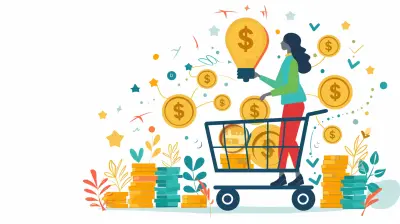The Role of Personalization in Modern Sales
17 November 2025
In today’s fast-paced digital world, one-size-fits-all sales strategies just don’t cut it anymore. Customers crave a personalized experience—they want to feel seen, heard, and understood. That’s where personalization in sales comes into play.
If you're in the business of selling (which, let’s be honest, most of us are in some way), then personalization isn’t just an option—it’s a necessity. But what exactly is personalization in sales? And why is it such a game-changer? Let’s dive in. 
What is Personalization in Sales?
Personalization in sales is the process of tailoring your sales approach to meet the specific needs, preferences, and behaviors of each customer. It’s all about making your customer feel like they’re more than just a number.From addressing a customer by their first name in an email to recommending products based on their past purchases, personalization is about creating a unique and relevant journey for each customer.
Think of it like this: Imagine walking into your favorite coffee shop, and before you even say a word, the barista greets you by name and asks if you’d like your usual order. Feels great, right? That’s the magic of personalization—it builds loyalty, fosters trust, and makes people want to come back for more. 
Why Does Personalization Matter in Modern Sales?
1. Customers Expect It
We live in an age where technology powers almost every aspect of our lives. From Netflix suggesting the next best show to watch to Amazon recommending products based on our browsing history, personalization is everywhere. Customers expect the same level of customization when making purchasing decisions.2. Higher Engagement, Better Relationships
People don’t want to feel like they’re talking to a robot. When you personalize your approach, you create a more meaningful connection with customers. You’re not just selling a product—you’re offering a solution that fits their specific needs.3. Boosts Conversions and Sales
It’s simple: when customers feel like an offer is crafted just for them, they’re more likely to buy. Studies show that personalized emails can increase transaction rates by up to six times compared to generic emails. Personalization transforms leads into lifelong customers.4. Increases Brand Loyalty
When customers feel valued, they stick around. Personalization fosters loyalty by making customers feel like they have a relationship with your brand rather than just being another sale. Happy customers mean repeat business.
How to Implement Personalization in Your Sales Strategy
1. Collect and Utilize Customer Data
The first step in personalizing your sales approach is understanding your customer. This means gathering data about their preferences, past purchases, browsing behavior, and even their interactions with your business.Tools like CRM (Customer Relationship Management) software can help you keep track of customer data and use it to create highly targeted campaigns.
2. Segment Your Audience
Not all customers are the same, and they shouldn’t be treated as such. Segmenting your audience based on demographics, behavior, and interests allows you to tailor your messaging accordingly.For example, if you own an online clothing store, you wouldn’t send the same email to a customer who frequently buys athletic wear as you would to one who prefers business attire.
3. Personalized Emails & Communication
Ever opened an email that starts with "Hey [Your Name]"? Feels more engaging, right? Personalized emails see higher open rates and better engagement than generic ones.But personalization isn’t just about including a name—it’s about making the content relevant. Offer product suggestions based on past purchases or send a personalized thank-you message after a sale.
4. Use AI & Automation for Smart Personalization
Thanks to AI-powered tools, personalizing the customer experience has never been easier. Chatbots, recommendation engines, and predictive analytics can help businesses offer real-time personalized suggestions and responses.For example, Netflix uses AI to recommend movies based on what you’ve previously watched. E-commerce stores like Amazon suggest products based on your browsing history. Why not incorporate similar strategies into your sales approach?
5. Leverage Social Media for Personalized Engagement
Your customers are on social media—are you engaging with them personally? Responding to comments, sending direct messages, and even customizing your ads based on user behavior can go a long way.Facebook and Instagram allow businesses to create dynamic ads that adjust the product recommendations based on what users have interacted with. This is personalization in action.
6. Tailor Sales Conversations
If you’re selling in a B2B environment, personalization is even more crucial. Before hopping on a sales call, research your prospects. Learn about their industry, challenges, and goals so your pitch resonates with them personally.Imagine you’re a software provider pitching to a retail company. Instead of giving a generic sales pitch, talk about how your solution can solve the common pain points of retail businesses. This instantly makes the conversation more relevant. 
Real-World Examples of Personalization in Sales
Amazon's Personalized Shopping Experience
Amazon is the king of personalization. From showing products based on past searches to sending personalized email recommendations, Amazon ensures every customer sees products that are relevant to them.Spotify's Custom Playlists
Ever noticed how Spotify curates "Discover Weekly" and "Release Radar" just for you? That’s personalization at its finest, keeping users engaged and coming back for more.Starbucks’ Rewards Program
Starbucks uses personalization to reward loyalty with customized offers based on customers’ past orders. This encourages repeat visits while making customers feel valued.The Future of Personalization in Sales
As technology advances, hyper-personalization will become the norm. With AI and machine learning, businesses will be able to predict customer needs before they even realize them.Imagine receiving a discount on an item right before you're about to run out of it—that’s the future of personalization. Companies that embrace this trend will stay ahead of the competition and build long-term customer relationships.
Conclusion
Personalization isn’t just a buzzword—it’s a must-have strategy in modern sales. Customers expect it, and businesses that fail to deliver a personalized experience risk losing them to competitors who do.Whether through personalized emails, smart recommendations, or tailored sales conversations, there are countless ways to make your customers feel special. And when they feel special, they buy more, stay loyal longer, and become raving fans of your brand.
So, if you’re not personalizing your sales approach yet… what are you waiting for?
all images in this post were generated using AI tools
Category:
SalesAuthor:

Lily Pacheco
Discussion
rate this article
1 comments
Faith Cole
Personalization is no longer optional in modern sales. It builds trust and enhances customer experiences, leading to stronger relationships and increased loyalty. Businesses must prioritize tailored strategies to stay competitive and meet evolving consumer expectations.
November 27, 2025 at 3:35 AM

Lily Pacheco
Thank you for highlighting the critical role of personalization in sales! I completely agree that it fosters trust and loyalty, making tailored strategies essential for staying competitive in today’s market.


